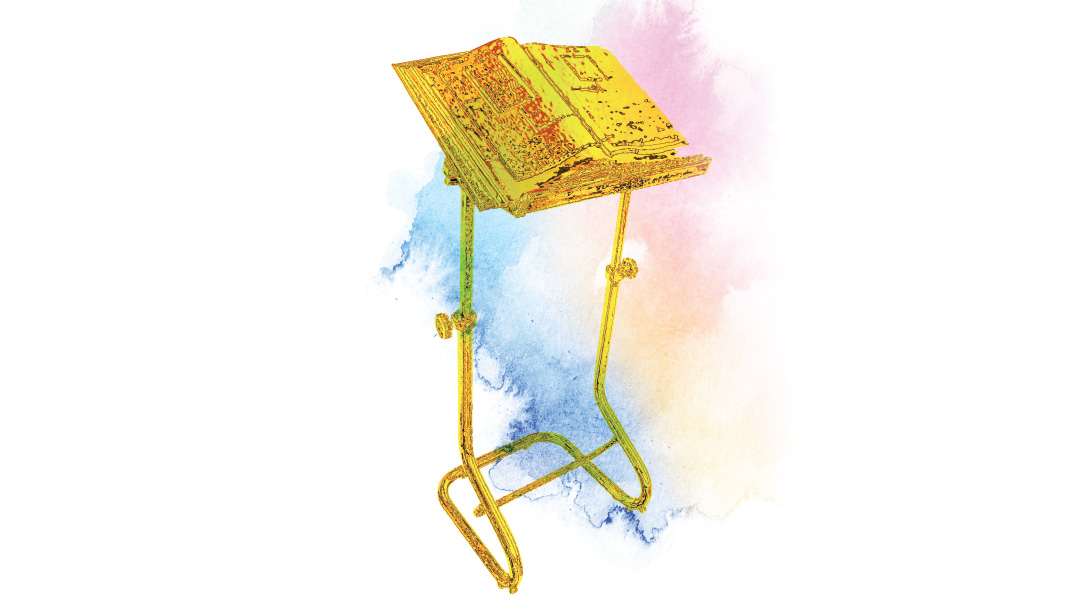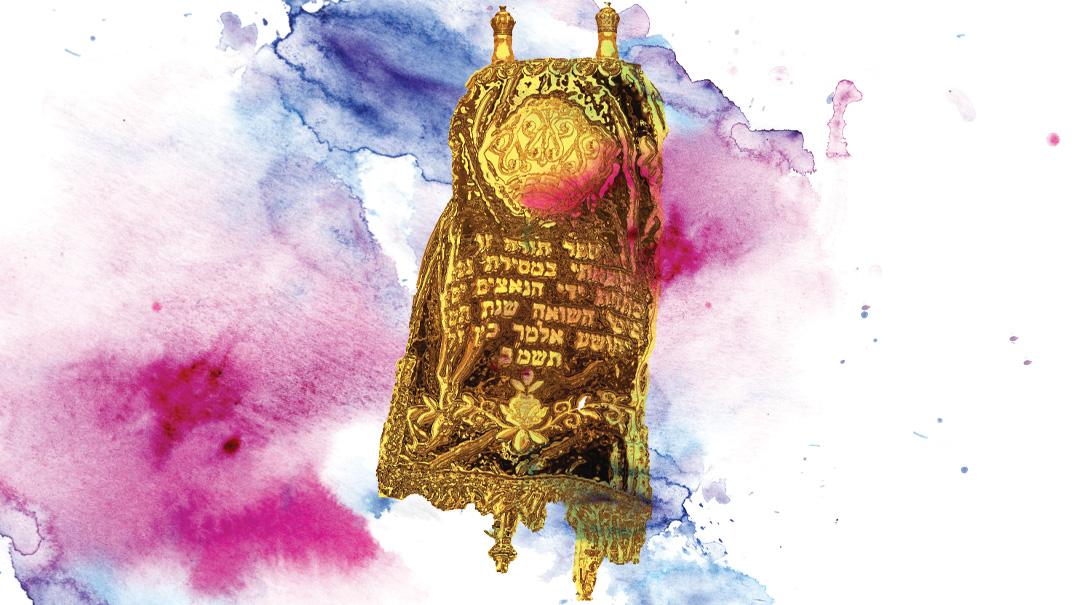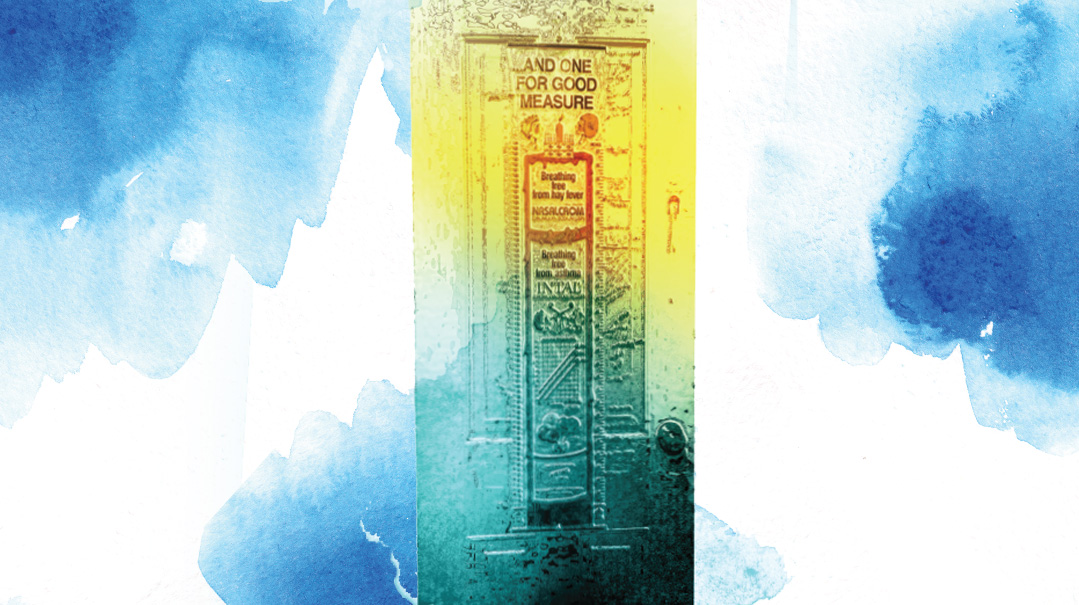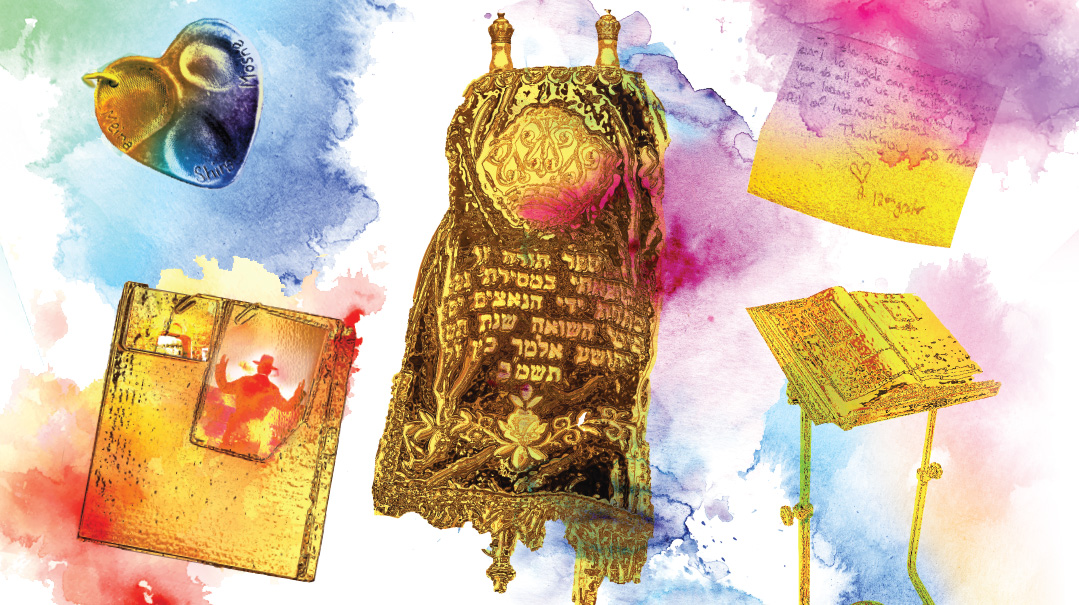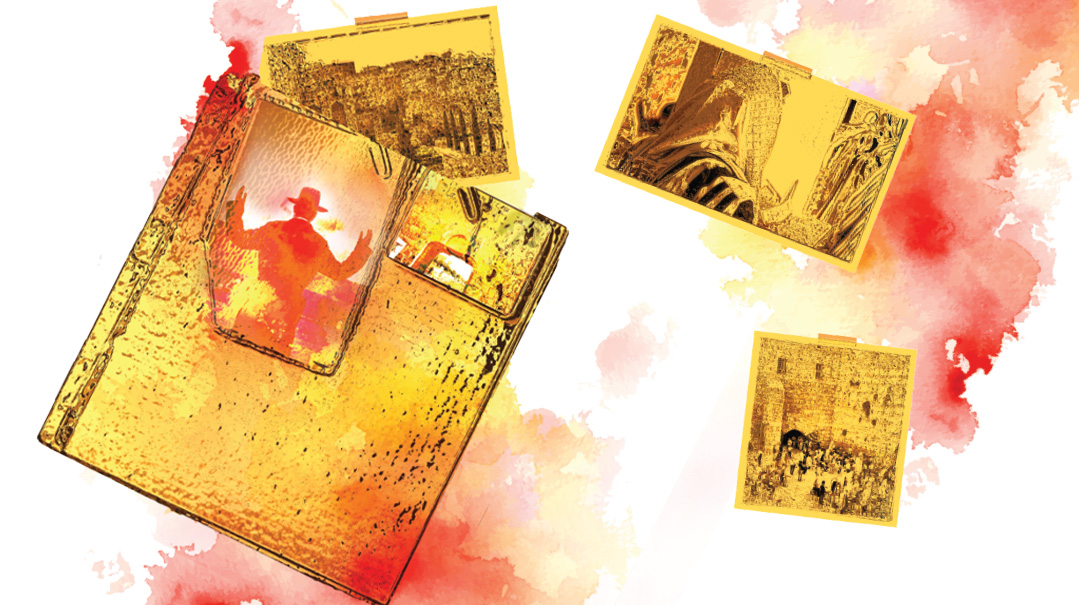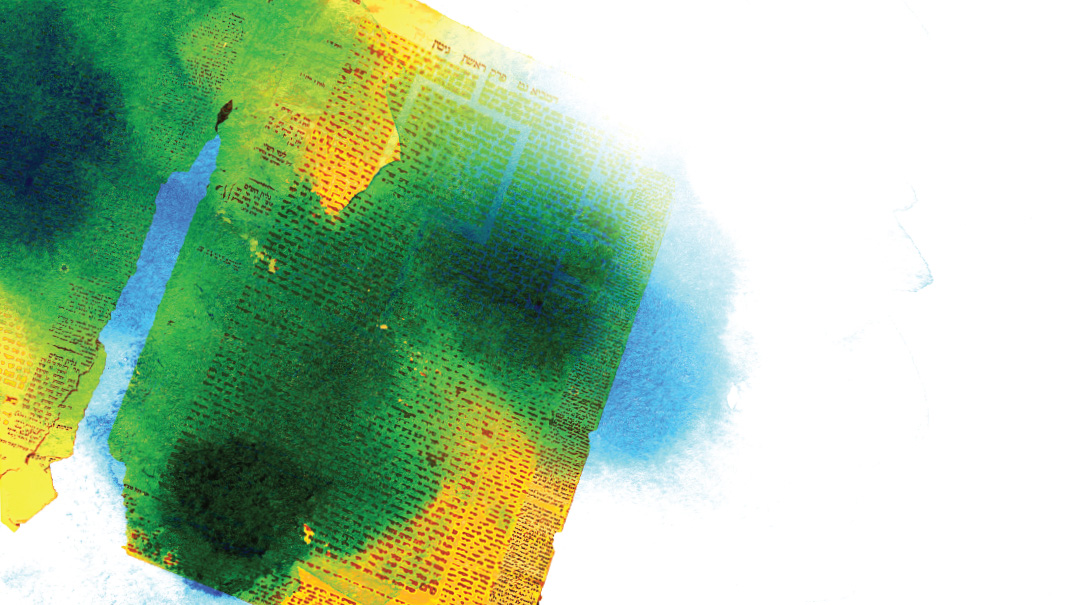Brought to Light

Mr. Weinstein, an old man with a thick Yiddish accent and blue numbers tattooed on his arm, took command
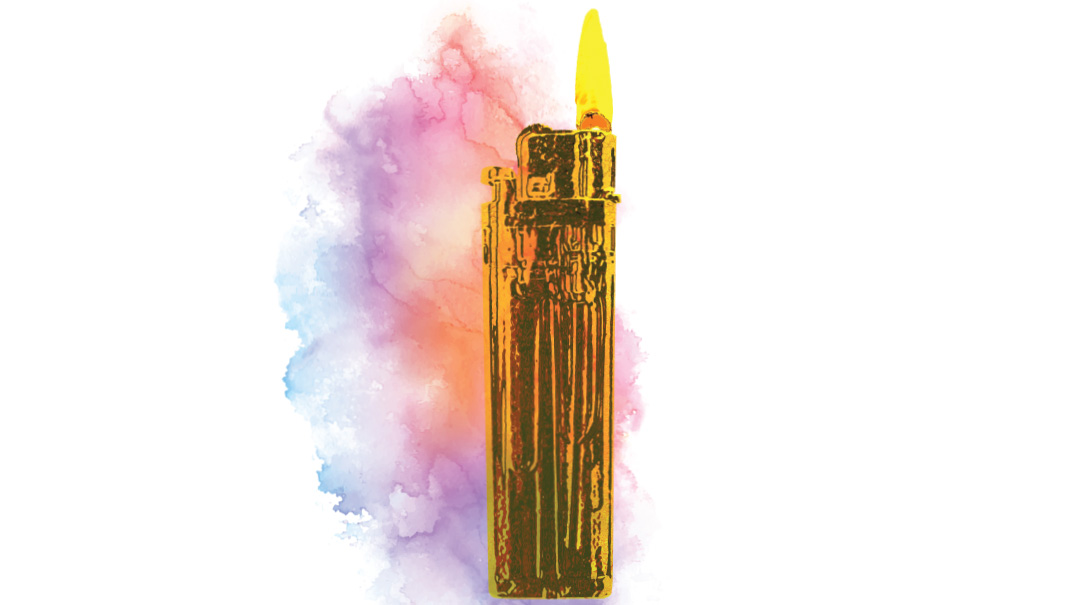
ON a regular Tuesday in 1965, I got off the school bus with my older brother and walked to our apartment building. As usual, there was a crowd of people waiting for the elevator; it was a little after five p.m., and everyone was on their way home after work.
We got into the elevator at five twenty-five. People crowded in behind us until the elevator was at capacity, then the doors closed, and it began its slow ascent.
Suddenly the lights went out. The elevator shuddered to a stop.
We had no idea that we were among over 800,000 people stranded and stuck in elevators and subways all over New York City in what would be known as the Great Northeast Blackout of 1965. All we knew was that we were trapped in a dark, crowded cubicle.
There were flashes of light as people began flicking their cigarette lighters. One man took advantage of the light to force open the decorative door, which revealed the steel door with its huge lever. Another man pushed the lever, and the elevator door flew open. Miraculously, we had stopped about six feet above the lobby, and as the door opened, we could see the people still waiting on the ground floor.
There was a very small opening at the bottom of the elevator. Mr. Weinstein, an old man with a thick Yiddish accent and blue numbers tattooed on his arm, took command. Authoritatively, he called, “Let’s at least save the boys!”
He pushed something into my hand and said, “Es zol zeyn far a shmirah.” Immediately, my brother and I were lowered through the gap into the waiting hands of those in the lobby.
We were the only ones small enough to be lowered down. Before we disappeared into the mass of people, Mr. Weinstein called, “Hashem Yishmor!”
My brother and I looked at each other, at a loss. The elevator was broken, the staircase up to the 13th floor was darker than the night, and our father was not due home until seven.
I thought, “Mr. Weinstein said Hashem is watching over us.”
At that moment, I heard a familiar voice calling my name. My father was striding across the lobby. His last two appointments had been cancelled, and he came home early for the only time I could ever recall. Even more unusual, he was carrying an old flashlight. I never noticed a flashlight in his car, neither before nor after, but somehow, he had one.
We began to trek up the 13 flights. On the 11th floor, my father’s flashlight began flickering and fading. Then we heard my mother’s voice.
“Moshe, is that you? Do you have the boys with you?”
My mother was walking downstairs with a candle to meet us.
When I entered our darkened apartment, I gave my mother the object Mr. Weinstein had pressed in my hand in the elevator. It was a cigarette lighter. He obviously thought we might need it. My mother took it from me and put it away for safekeeping.
Years passed. In 2015, my mother left this world, and among other papers and effects, I inherited a small cigar box marked, “636 Brooklyn Ave,” our old apartment building address. I put it away without opening it.
In September 2022, I found myself speaking casually to a group of men after the 11 p.m. Maariv in our shul in Passaic. Something reminded me of the 1965 blackout, and I briefly related how my brother and I were rescued from the elevator and how an elderly Holocaust survivor gave me his cigarette lighter.
I added, “This year, the secular date of the anniversary of the blackout, November 9, falls on the 15th of Cheshvan, just as it did 57 years ago.” Then I mused, “I wonder whatever happened to that cigarette lighter?”
There was a man standing nearby. He seemed to be in his seventies, and he listened attentively to every word. When I walked out, he approached me.
“That was some story you told about being stuck in the elevator.”
I nodded.
“I don’t live around here, and I’ve actually never been to Passaic before. But I’m intrigued by the older gentleman who gave you the lighter. Do you remember what his name was?”
“Sure,” I answered. “Mr. Weinstein.”
The man’s face lit up. “My name is Weinstein, and that man in the elevator was my grandfather! I was a teenager during the blackout, and he told me the story of being stuck in the elevator with two boys.”
I was stunned.
Mr. Weinstein’s grandson pleaded, “Do you have my grandfather’s lighter?”
I had not seen or even thought about the lighter in over half a century. But his voice was full of desperation and longing. I suddenly recalled the box I had brought from my mother’s home seven years ago. I had never thought to open it, but I knew exactly where it was. I told the man to meet me in my office in one hour.
I retrieved the box and opened it. There were a few old keys and a lease from 1963, and there it was: a silver cigarette lighter.
My mother had attached a note to the lighter: “Given by Mr. Weinstein night of blackout November 9, 1965.”
I returned to the shul to give Mr. Weinstein’s grandson the lighter. His eyes lit up and he caressed it lovingly.
It was very tarnished, but we could discern a faint Hebrew engraving. Mr. Weinstein’s grandson carefully rubbed his fingers over the spot to clean it.
The engraving read, “Shomer Yisrael.” Below those words, in small letters, were the words, “Warsaw, Erev Rosh Hashanah 5700.”
Mr. Weinstein’s grandson looked at me and, through tear-filled eyes, said, “Thank you. My grandfather told me he had a cigarette lighter given to him by his grandfather at the beginning of the war in 1939.
His grandfather told him it would be a shmirah for him. He kept it with him during the war and hid it with him even in Auschwitz. When the lights went out in the elevator, my grandfather was sure that the war had begun again, that the Nazis were bombing again. He told us that as one last act of chesed, he gave the lighter to a red-headed boy who was small enough to escape the elevator. He was sure that only this boy and his brother would survive the bombing.
“Later, when he realized it was an innocuous blackout and the Nazis had not really returned, my grandfather wanted to get the lighter back. Unfortunately, he passed away soon after. I’ve been davening for 57 years to find the lighter. Today, when you told the story, I knew Hashem had answered my tefillos.”
“What were you doing here at the 11 p.m. Maariv tonight?” I asked him.
“I wasn’t planning to be here,” Mr. Weinstein said. “In fact, I never even heard of Passaic! I was flying from overseas to Newark, and I was supposed to catch a connecting flight to the West Coast. My flight was delayed, and when I asked someone where the closest late Maariv was, they told me to come here. My zeide taught me to always say Shalom Aleichem to the rav of the shul, so I followed you out of shul and heard your story.”
“Your commitment to tefillah b’tzibbur is inspiring,” I said.
“I would have davened b’yechidus,” Mr. Weinstein admitted. “But when I heard the plane was delayed, I looked through my phone and realized I should say Kaddish tonight.”
“What do you mean, you realized you should say Kaddish? Are you an avel? Do you have yahrtzeit?”
“No — but on my phone I keep a list of all of my relatives and the dates when they passed away, and if there’s no one to say Kaddish, I try to say a Kaddish for them. I had noticed that tonight is the yahrtzeit of one of my family members. The truth is,” he added, “I didn’t even have time to see whose yahrtzeit it is. Let me check.”
He scrolled through his phone and I heard him suck in a breath.
“Tonight, is the yahrtzeit of my zeide’s zeide,” he said, shaking his head. “Tonight, is the yahrtzeit of the man who gave my zeide the lighter! He died in the Warsaw Ghetto.”
“What was his name?”
“His name is my name, Shmuel Zalman ben Aryeh Leib Weinstein.”
Mr. Weinstein shook his head again. “I came here looking for a late Maariv, and I’m leaving in possession of the only existing physical link to my past.”
Mr. Weinstein rushed back to Newark airport, and I stood still, awash in awe of the Creator of light.
Rabbi Ron Yitzchok Eisenman is the rav of Congregation Ahavas Israel in Passaic, New Jersey, and a columnist in this magazine.
(Originally featured in Mishpacha, Issue 929)
Oops! We could not locate your form.

